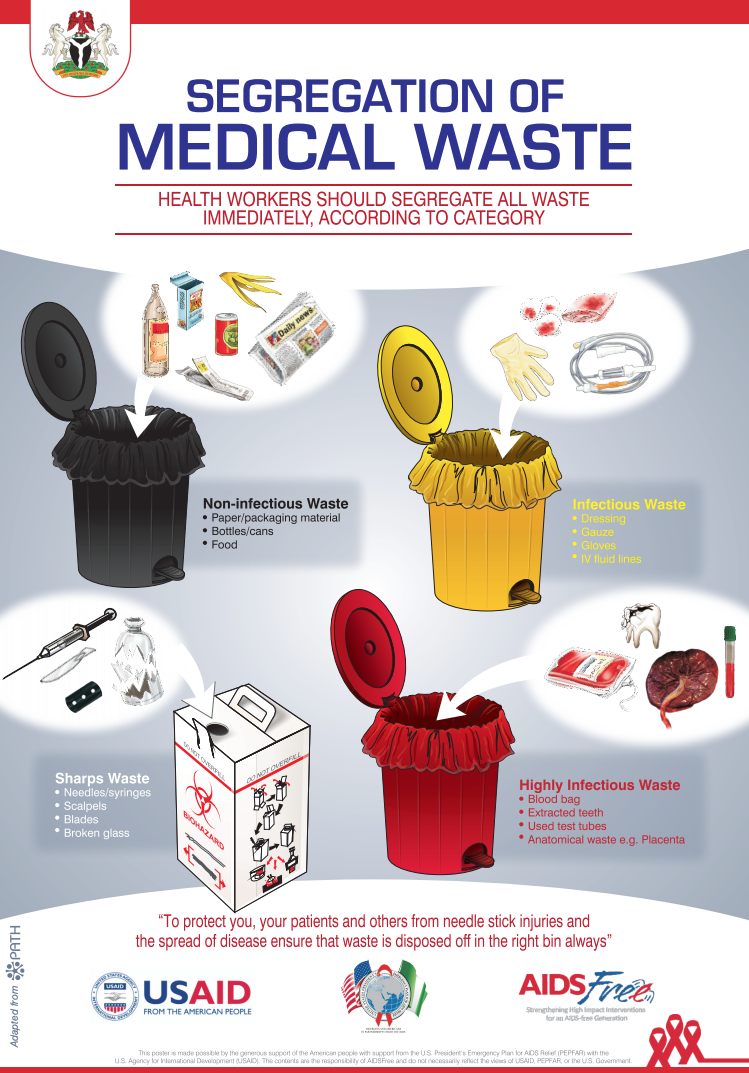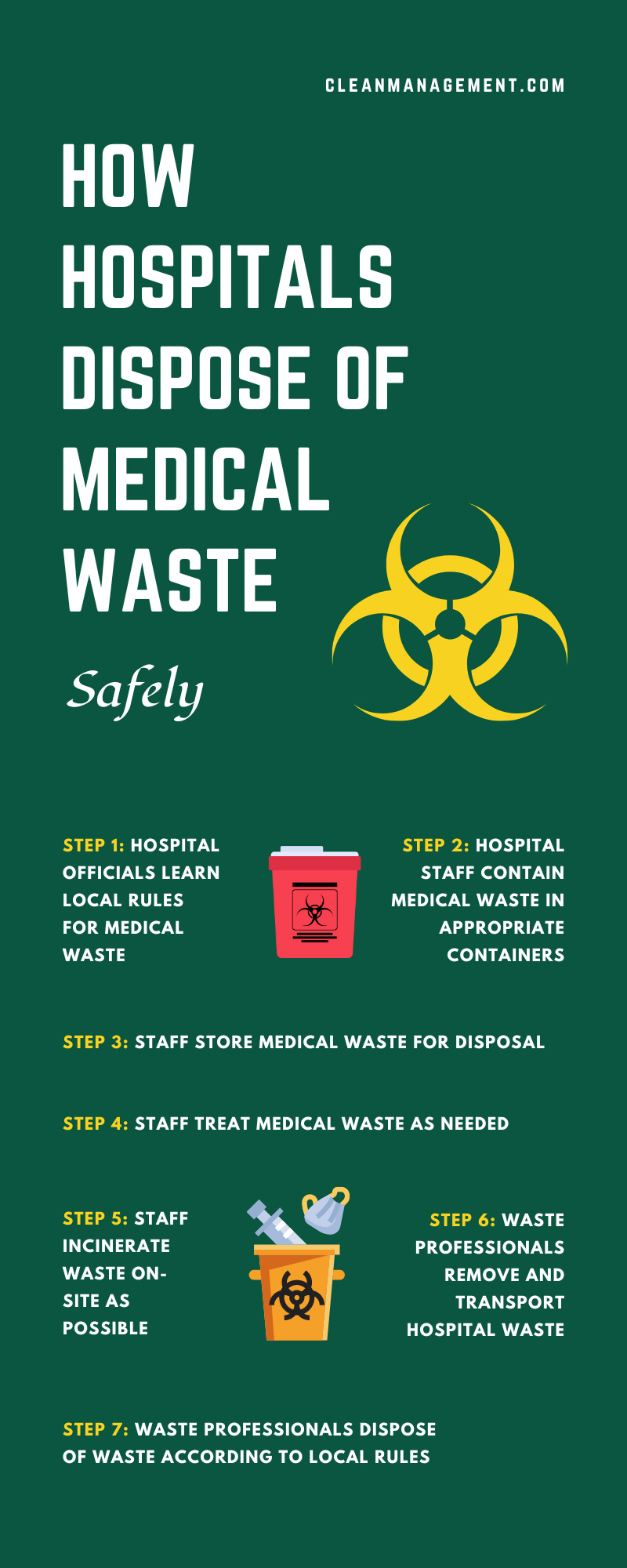Accountable Solutions: Recognizing Medical Waste Disposal Provider
In the world of health care, the correct disposal of medical waste is an important facet that requires careful consideration. As healthcare facilities produce different types of waste that need customized handling, understanding the nuances of medical waste disposal services is vital.
Importance of Proper Clinical Waste Disposal
Proper clinical waste disposal is crucial in keeping a sanitary and secure atmosphere within healthcare centers. In healthcare setups, various types of waste are created daily, consisting of transmittable products, sharps, expired medicines, and chemical compounds.

Kinds of Medical Waste
Within health care centers, a varied array of waste products classified as medical waste is produced, each needing certain handling and disposal approaches. Medical waste can be classified right into a number of types based on its qualities and prospective threats. Transmittable waste, such as made use of cultures, needles, and swabs, positions a considerable threat of spreading infections and have to be thoroughly dealt with to stop any kind of possible damage. Contaminated materials includes chemicals, pharmaceuticals, and particular materials that might be reactive or harmful. These materials call for customized disposal methods to decrease environmental influence and ensure safety. Pathological waste, that includes tissues, body organs, and body components, requires correct disposal to value the self-respect of the departed and stop any type of biohazards. Pharmaceutical waste, like expired medicines and radiation treatment drugs, need to be disposed of correctly to prevent abuse or ecological contamination. Comprehending the various kinds of medical waste is critical for healthcare centers to carry out reliable waste management techniques and shield public health and wellness and the setting (Medical Waste Disposal Services).
Rules and Compliance
Healthcare centers need to stick to strict guidelines regarding the handling and disposal of medical waste to make certain compliance with legal demands and protect public wellness. These regulations are implemented to stop the spread of infections, shield the atmosphere, and keep the security of medical care employees and the public. Various regulative bodies, such as the Epa (EPA), the Occupational Safety And Security and Health And Wellness Administration (OSHA), and the Department of Transportation (DOT), have specific standards that health care facilities must follow.
To adhere to these laws, health care centers should appropriately set apart, store, transportation, and dispose of various kinds of clinical waste. This consists of sharps waste, infectious waste, contaminated materials, and pharmaceutical waste, each calling for particular dealing with treatments. Facilities needs to additionally keep precise records of waste generation and disposal to demonstrate compliance throughout inspections.
Non-compliance with medical waste policies can result in serious charges, penalties, and damages to the facility's reputation. For that reason, it is essential for healthcare facilities to remain educated you could check here concerning the most up to date regulations and apply robust compliance procedures to safeguard public health and the atmosphere.
Advantages of Expert Disposal Solutions
Involving specialist clinical waste disposal solutions provides health care facilities a dependable and reliable remedy for taking care of hazardous products. These solutions utilize trained specialists who are well-versed in handling various kinds of medical waste, guaranteeing proper partition, packaging, disposal, and transportation. Medical Waste Disposal Services.
Furthermore, expert disposal services make use of state-of-the-art tools and comply with industry finest techniques to minimize ecological influence and decrease the risk of contamination. This not only advertises a more secure work atmosphere for health care personnel but additionally adds to general public health and safety. In addition, outsourcing medical garbage disposal can lead to set you back financial savings over time by removing the demand for internal management and disposal systems.
Lasting Practices in Healthcare

One key sustainable method in recommended you read healthcare is waste decrease. By executing methods to lower unneeded product packaging, single-use items, and general waste generation, medical care centers can significantly lower the amount of waste sent to landfills or incineration. Furthermore, recycling programs for products like plastic, paper, and glass can further reduce the environmental impact of healthcare procedures.

Final Thought
In conclusion, appropriate medical waste disposal is essential in maintaining a risk-free and healthy environment for both recommended you read health care workers and the public. Recognizing the various kinds of clinical waste, adhering to guidelines and compliance requirements, and using expert disposal solutions are important action in liable waste monitoring. By taking on lasting practices in medical care facilities, we can decrease environmental effect and make sure the health of all people entailed in the health care industry.
As health care centers generate different types of waste that call for customized handling, comprehending the nuances of clinical waste disposal solutions is extremely important.Within health care facilities, a diverse variety of waste materials classified as medical waste is created, each calling for particular handling and disposal techniques. Understanding the different kinds of medical waste is essential for medical care centers to implement efficient waste management techniques and shield public health and wellness and the atmosphere.
By implementing techniques to decrease unnecessary packaging, single-use things, and total waste generation, medical care centers can dramatically lower the quantity of waste sent out to garbage dumps or incineration. Comprehending the various types of clinical waste, following laws and conformity criteria, and making use of professional disposal services are necessary steps in liable waste monitoring.